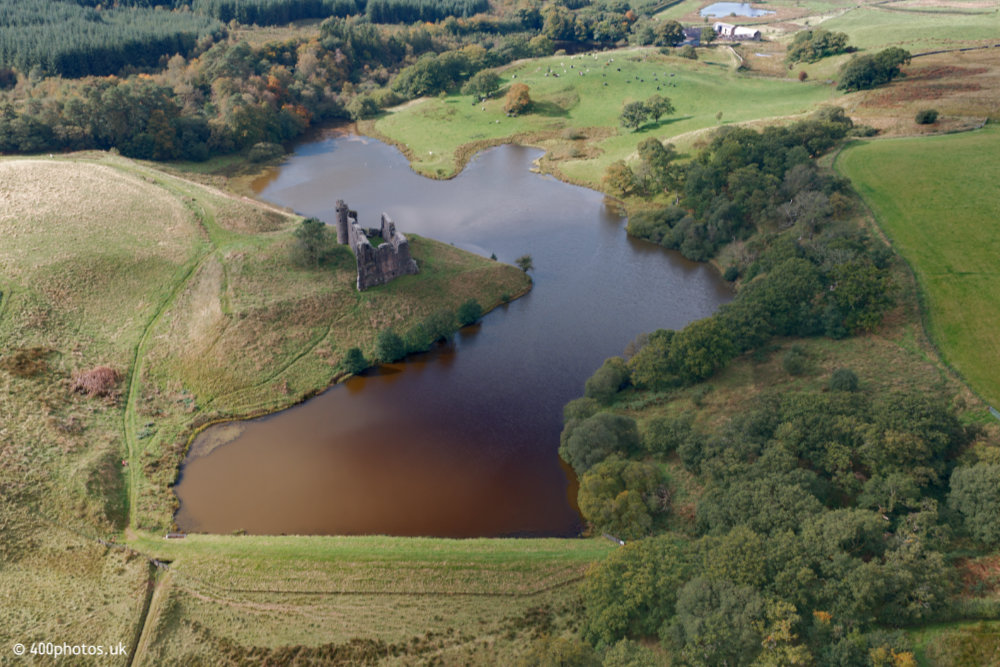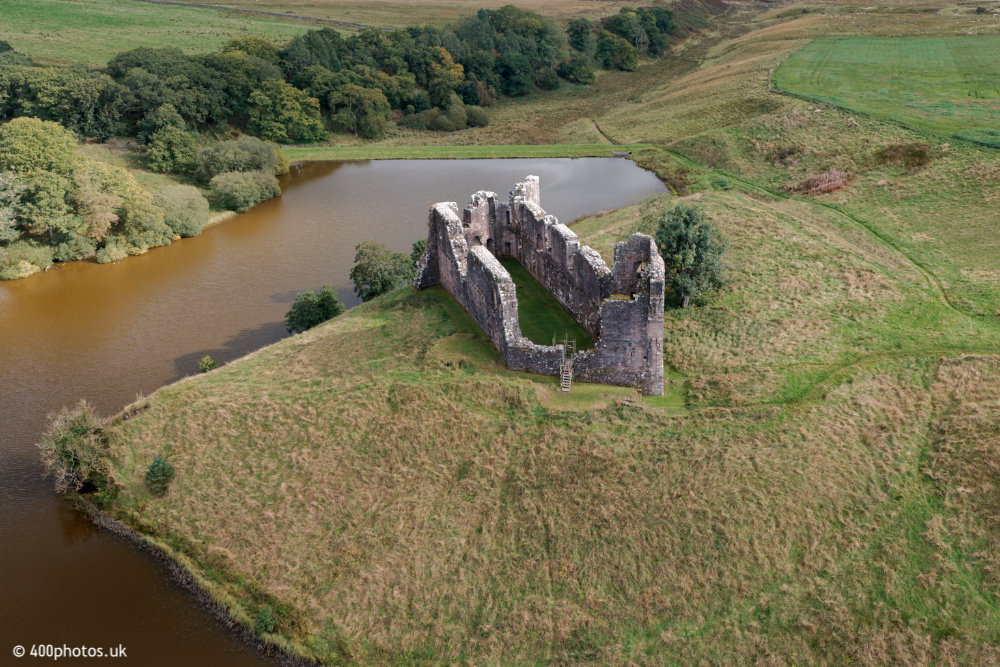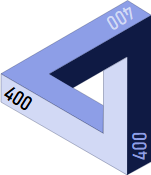Morton Castle
Dumfries & Galloway
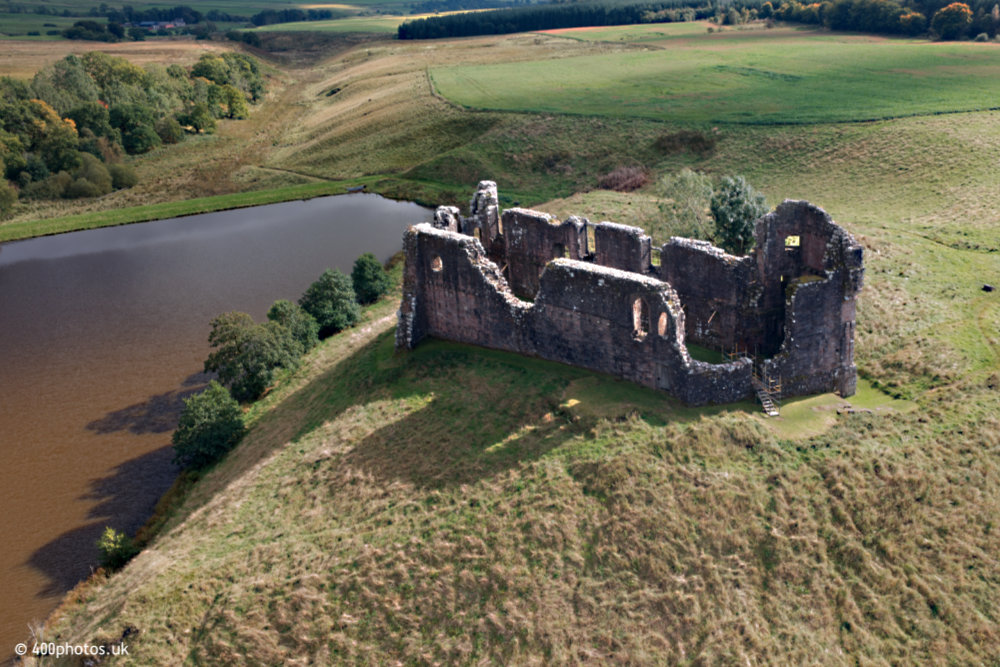

From the north. This castle is on a quiet country road a few miles north
of Carronbridge on the A76 Kilmarnock to Dumfries road.
It's not that far from Drumlanrig Castle which is less than three miles to the west but is a little tricky to find and the last stretch of road up to it is pretty rough.
There's a good chance that visitors will get the place to themselves.
It's not that far from Drumlanrig Castle which is less than three miles to the west but is a little tricky to find and the last stretch of road up to it is pretty rough.
There's a good chance that visitors will get the place to themselves.
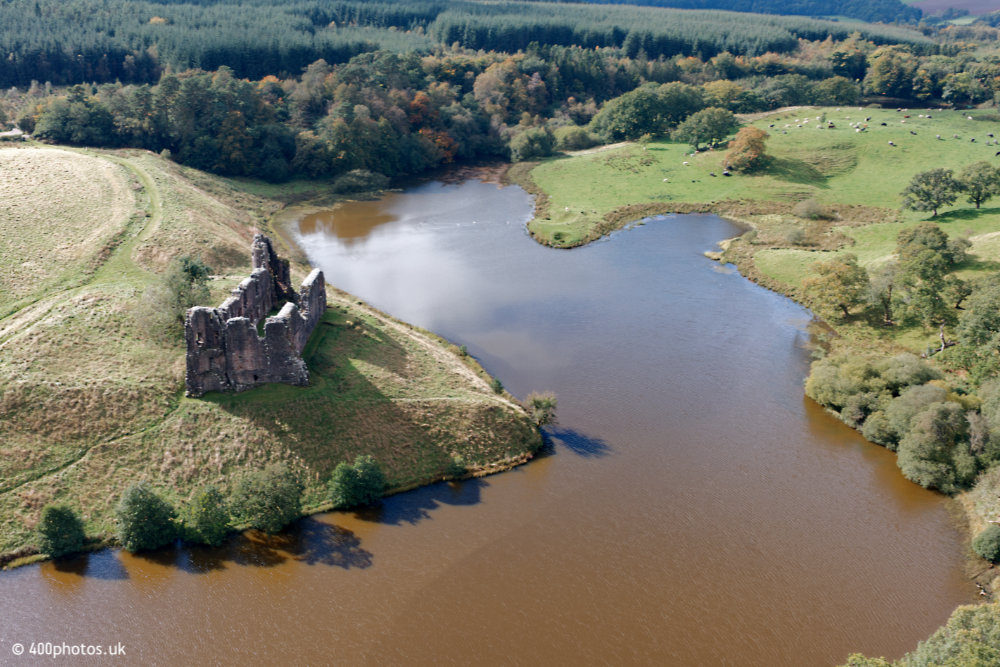

The location on a bluff over a man-made lake is quite distinctive.
This is a replacement castle - actually more of a hall-house - built in the 1400s to replace an earlier version that may date back to the 1260s. Around 1300 is a fair estimate.
Morton Castle is in the care of Historic Environment Scotland. Entry and the limited parking are both free and there are no other facilities.
This is a replacement castle - actually more of a hall-house - built in the 1400s to replace an earlier version that may date back to the 1260s. Around 1300 is a fair estimate.
Morton Castle is in the care of Historic Environment Scotland. Entry and the limited parking are both free and there are no other facilities.
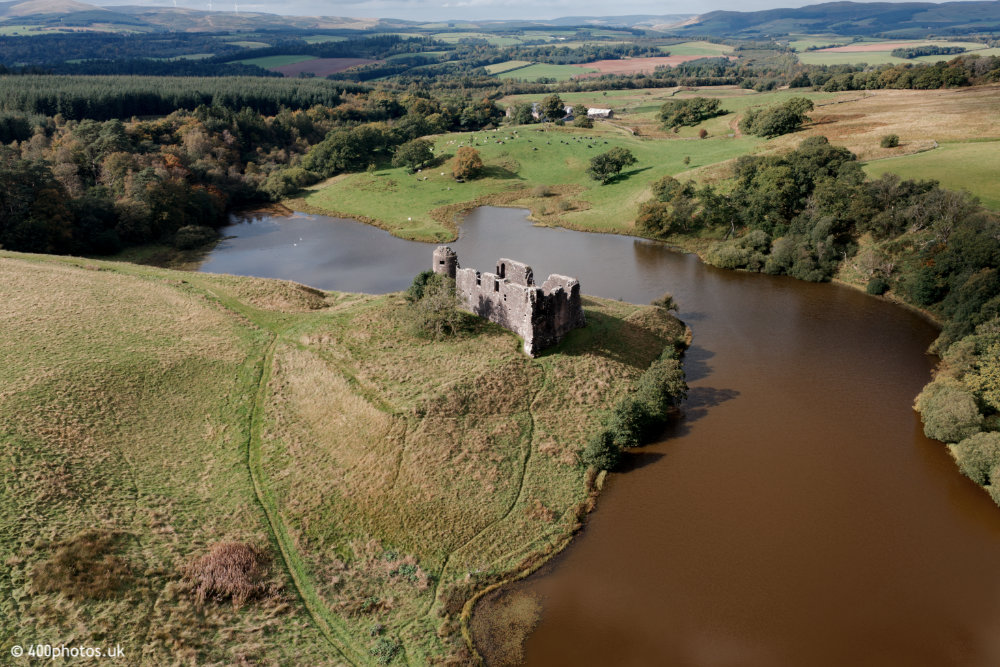

Looking downhill towards Morton Mains farm.
In the 1500s it was occupied by the Douglases of Drumlanrig but then burnt in 1588 by James VI as part of an anti-Catholic campaign against Lord Maxwell, the Earl of Morton.
That was a few years before the Union of the Crowns in 1603.
In the 1500s it was occupied by the Douglases of Drumlanrig but then burnt in 1588 by James VI as part of an anti-Catholic campaign against Lord Maxwell, the Earl of Morton.
That was a few years before the Union of the Crowns in 1603.
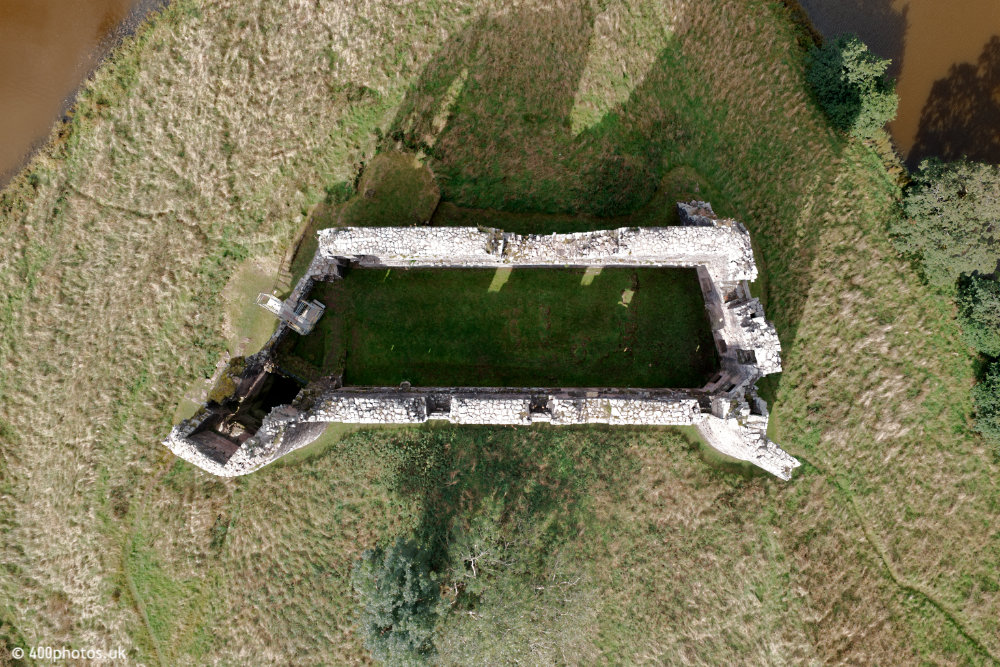

The steps to let visitors into and out of the castle are on the left.
There are indications that the castle was actually built by an English master mason.
There are indications that the castle was actually built by an English master mason.

